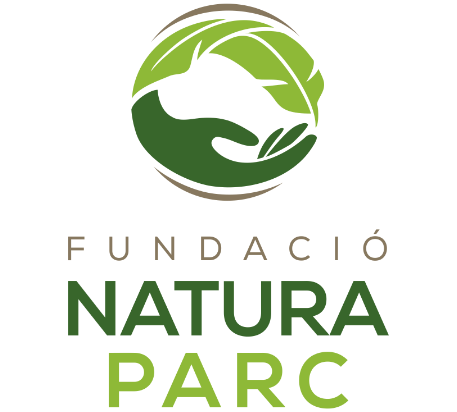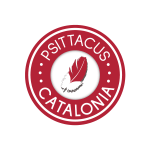PROYECTO
RAMPHASTIDAE
Desarrollo de un nuevo protocolo para la cría manual de pichones de especies pertenecientes a la familia Ramphastidae, en base al suministro de un alimento completo en formato de gel
ÁMBITO DEL PROYECTO: Avicultura y conservación
ENTIDADES COLABORADORAS
LUGAR DE REALIZACIÓN DEL
PROYECTO
PROYECTO
PROPUESTA
Febrero de 2022
Febrero de 2022
Fundació Natura Parc (Mallorca), sede de
Psittacus USA (Miami)
Psittacus USA (Miami)
PUBLICACIÓN
(pendiente)
(pendiente)
LUGAR DE REALIZACIÓN DEL PROYECTO
Fundació Natura Parc (Mallorca), sede de Psittacus USA (Miami)
PROPUESTA
Febrero de 2022
Febrero de 2022
PUBLICACIÓN
(pendiente)
(pendiente)
ESTADO DEL PROYECTO
ESTADO DEL PROYECTO
1
Propuesta a confirmar
2
Análisis preliminares
3
Planificación y diseño
4
Realización
5
Análisis e interpretación de resultados
6
Publicación de resultados
1
Propuesta a confirmar
2
Análisis preliminares
3
Planificación y diseño
4
Realización
5
Análisis e interpretación de resultados
6
Publicación de resultados
ANTECEDENTES
Las aves de la familia Ramphastidae pueden llegar a ser muy prolíficas en cautividad, pero a menudo no incuban y/o no crían correctamente a su progenie. Esto comporta que la práctica de la incubación artificial y posterior crianza manual, sea muy generalizada en los centros de cría y entidades zoológicas.
Sin embargo, el proceso de cría manual resulta complejo debido especialmente al hecho de que los alimentos comerciales disponibles en la actualidad no cubren adecuadamente las necesidades de estas aves.
Un factor determinante reside en las características físicas del alimento a suministrar a los polluelos. Estas aves están «programadas» para recibir alimentos sólidos (fruta, pichones de otras especies, invertebrados…), no para recibir alimentos líquidos.Es por ello que el suministro de papillas no resulta ser un procedimiento de alimentación especialmente adecuado para ellas.
El uso de alimentos completos con las características adecuadas, puede suponer un avance importante en los resultados de cría en cautividad de todas las especies de esta familia.
Sin embargo, el proceso de cría manual resulta complejo debido especialmente al hecho de que los alimentos comerciales disponibles en la actualidad no cubren adecuadamente las necesidades de estas aves.
Un factor determinante reside en las características físicas del alimento a suministrar a los polluelos. Estas aves están «programadas» para recibir alimentos sólidos (fruta, pichones de otras especies, invertebrados…), no para recibir alimentos líquidos.Es por ello que el suministro de papillas no resulta ser un procedimiento de alimentación especialmente adecuado para ellas.
El uso de alimentos completos con las características adecuadas, puede suponer un avance importante en los resultados de cría en cautividad de todas las especies de esta familia.
OBJETIVOS
Este proyecto pretende sentar las bases de un nuevo protocolo de cría manual para este grupo de especies, más seguro y fácil de aplicar, y que al tiempo mejore substancialmente los resultados del proceso de crianza. Este nuevo protocolo tendrá como eje fundamental el suministro de un alimento completo en formato de gel que, a instancias de la Fundación Psittacus, desarrollará para este fin el equipo de I+D de Psittacus Catalonia.
RESULTADOS ESPERADOS
- Simplificación de la labor de cría manual
- Mejora de los ratios de crecimiento
- Mejora de la sanidad de las aves
- Maximización de los porcentajes de viabilidad de los polluelos
- Mejora de las características finales de las aves criadas siguiendo este protocolo (peso, talla, calidad del plumaje…)

